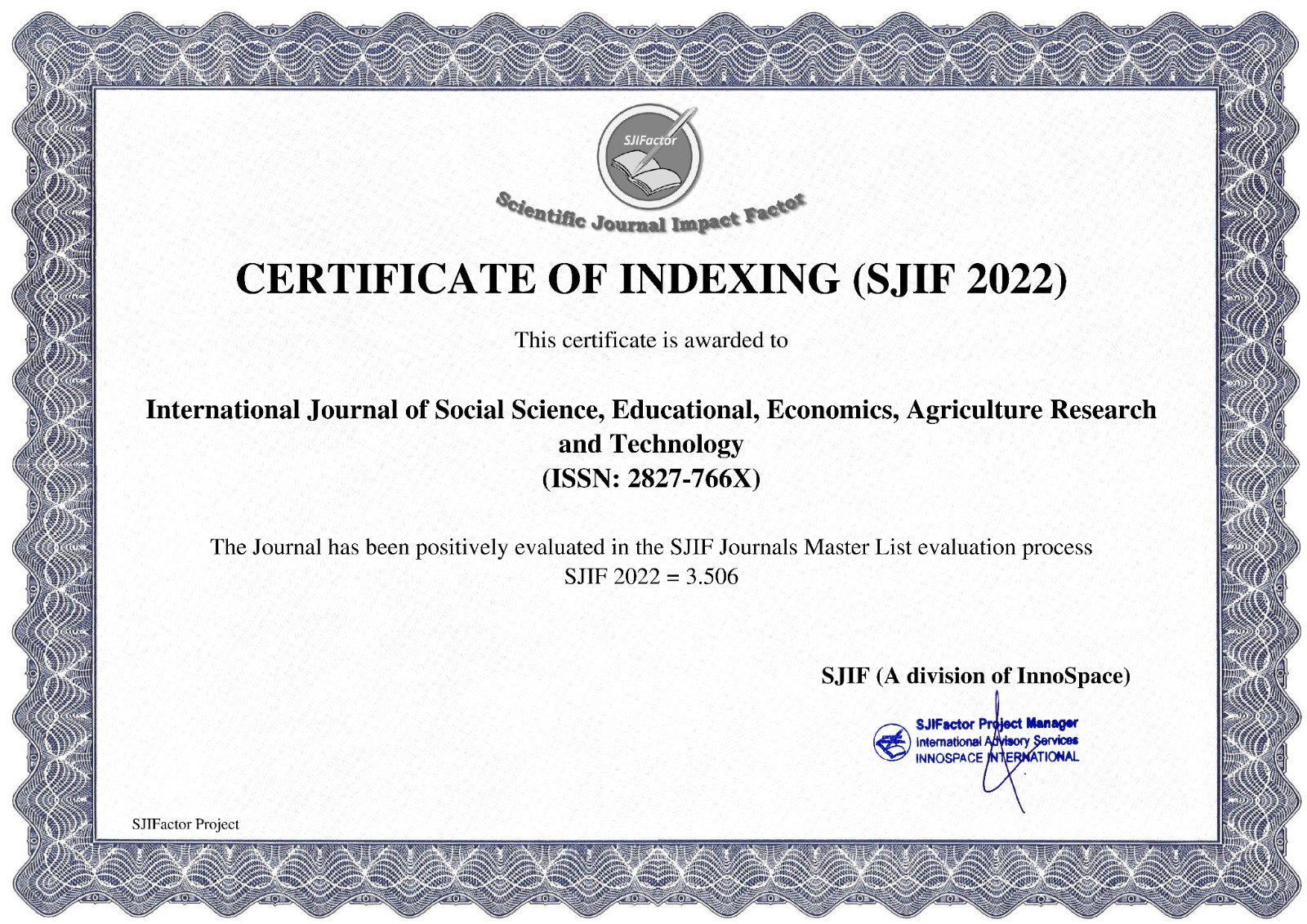THE INFLUENCE OF THE WELLNESS TOURISM NATURE ART, EART AND EMOTION PROGRAM ON THE MENTALITY OF GENERATION Z
Main Article Content
Dadan Ramdani
The background of this study is the increasing psychological pressure, stress, and anxiety among Generation Z due to intense social media exposure, academic and career competition, and rapidly changing social dynamics. The Wellness Tourism program that integrates elements of nature, art, connection with the earth, and emotional management is believed to be an alternative holistic approach to improving the mental resilience and psychological well-being of this generation. The purpose of this study is to determine the extent to which the program is effective in influencing aspects of the mentality of Generation Z, which include self-confidence, emotional stability, self-awareness, and a positive life orientation. This study uses qualitative methods. The results show that this activity invited several generation Z communities in Bandung to take part in wellness tourism art, ear and emotion activities. The concept of wellness tourism at this time is very useful for the sustainability of public health, especially generations. The community service program that focuses on the Z generation aims to increase awareness of the environment related to the state of the natural environment that needs to be preserved, then maintain and relax mental health for the generation from their busy schedule to enjoy the beauty and pleasant natural atmosphere. This program is divided into three stages, namely preparation, implementation, monitoring and evaluation. This wellness tourism program can be implemented well because generation z has better post-test scores than the pretest.
Ayu Dekawaty, & Inne Yelisni. (2025). Efforts to Improve Mental Health in the Elderly Through Art Therapy (Drawing) Programs. DedikasiMU: Journal of Community Service, 7(2), 164–170. https://doi.org/10.30587/dedikasimu.v7i2.9885
Beaumont, N. (2011). Ecotourism: impacts, potentials and possibilities. Annals of Leisure Research, 14(4), 390–392. https://doi.org/10.1080/11745398.2011.639443
Cobb, R. A., & Negash, S. (2010). Altered Book Making as a Form of Art Therapy: A Narrative Approach. Journal of Family Psychotherapy, 21(1), 54–69. https://doi.org/10.1080/08975351003618601
Jazuli, A., Salsabila, AY, Assidiqi, AH, & Sadiyah, D. (2023). The Strategy of the Head of Madrasah in Cultivating Fastabiqul Khoirot Culture in the State High School Environment in Batu City. EDHJ Unnusa, 8(April), 56–65. https://journal2.unusa.ac.id/index.php/EHDJ/article/view/4849
Matthew B Miles, A Michael Huberman, JS (2020). Qualitative Data Analysis (A Methods Sourcebook) (Helen Salmon (ed.)). SAGE Publications.
Mulyana, D. (2008). Qualitative Research Methodology: A New Paradigm for Communication Science and Other Social Sciences. Rosdakarya Youth.
Nadhiroh, U. (2021). The Role of Javanese Language Learning in Preserving Javanese Culture. JISABDA: Scientific Journal of Regional Literature and Language, and Their Teaching, 3(1), 1–10. https://doi.org/10.26877/jisabda.v3i1.9223
Ohly, H., White, M.P., Wheeler, B.W., Bethel, A., Ukoumunne, O.C., Nikolaou, V., & Garside, R. (2016). Attention Restoration Theory: A systematic review of the attention restoration potential of exposure to natural environments. Journal of Toxicology and Environmental Health, Part B, 19(7), 305–343. https://doi.org/10.1080/10937404.2016.1196155
Puczko, L., & Smith, M. (2014). Health and Wellness Tourism. Butterworth-Heinemann.
Ramadhan, W., & Sentosa, S. (2023). Analysis of the Integration of Islamic Values in Natural and Social Sciences (IPAS) Learning in the Independent Curriculum in Elementary Schools. El-Ibtidaiy: Journal of Primary Education, 6(1), 81–92. https://doi.org/10.24014/ejpe.v6i1.20416
Ramdani, D. (2025). Analysis of the Impact of Tourist Visits on the Culture of the Community Around the Batu Kuda Tourist Area, Bandung Regency. International Journal of Humanities, Education, and Social Sciences, 3(3), 851–869. https://doi.org/10.58578/ijhess.v3i3.6666
Setiawan, B. (2016). Wellness Tourism: New Opportunities for the Health and Fitness-Based Tourism Industry. Jurnal Pariwisata Pesona, 1(1), 45.
Sugiyono. (2017). Quantitative, Qualitative, and R&D Research Methods (26th ed.). Alfabeta.
UNWTO. (2022). Wellness Tourism Global Trends and Prospects. World Tourism Org.
Yasin, R. (2017). History of the Development of Ethical Thought. Islamic Education, 4(1), 9–15.






















